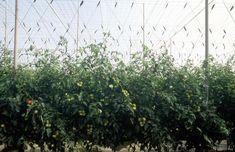
Sweltering heat in the Canary Islands is damaging new tomato plants, leading to increased costs for growers before the season has even started.
Temperatures have soared on the islands - as high as 36°C in some areas - in recent days and grower-exporters association Fedex-Asaja reports that young plants have been dessicated.
“At this stage in the season, the plants are still very small and do not have a great capacity to resist this type of heat,” said Roberto Goiriz of Fedex-Asaja. “This is leading to the loss of flowers, that would otherwise have become fruits and, in extreme cases, to an irreversible drying-out of the plants themselves.”
He warned that the sector cannot sustain this situation in the long term as it has suffered considerably in recent years from vagaries in temperature, pest and disease, and overseas competition.
Growers are already having to pull up the dried-out tomato, capsicum and cucumber plants and replace them.
Meanwhile, another association on the islands, Fedex-Aceto, has warned that tomato production could be down on last year by as much as a quarter.
Growers continue to invest in new varieties and better production systems to boost yields, but the sector is struggling to overcome the disease and climate problems that have beset it in recent seasons. The organisation said it is seeking denomination of origin status for Canary Islands tomatoes.



